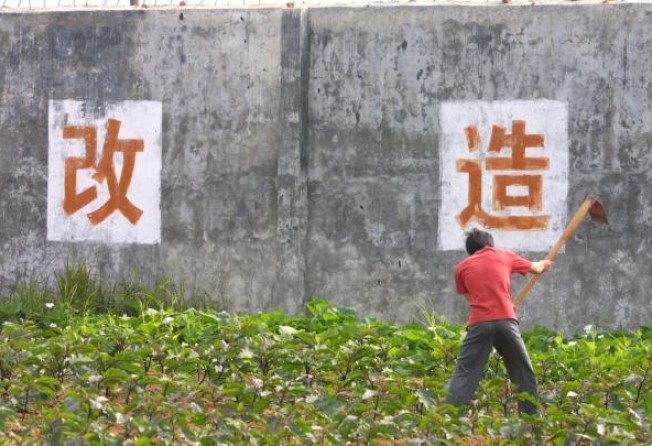
Calls to abolish labour camps are unlikely to be heard by NPC
Despite hopes the system of laojiao, or re-education through labour, will be halted, lawyers say too many obstacles remain for it to be abolished

With less than a week to go before the annual meeting of the National People's Congress, anyone hoping for bold and rapid action from China's new leaders on the 50-year-old re-education through labour system might be disappointed.


However, the latest issue of the party's flagship magazine Qiushi published an excerpt from Meng's January speech which said the re-education through labour system would be "reformed", rather than halted, this year.
Professor He Bing , vice-president of China University of Political Science and Law, said more than reform was called for.
"Reform is always a good idea, but this one has to be abolished immediately," he said. "Local governments and police bureaus have been relying on the system as an easy way to tackle problems. They don't try to settle the problems, which is more complicated, but use laojiao to settle the person who has problems."
The forced labour system was established under Mao Zedong in the 1950s as a way to contain "class enemies". Faced with growing social unrest, the central government increasingly relies on the system to punish today's petty criminals, cult members and government critics.
Pu Zhiqiang , a human rights lawyer involved in several laojiao cases, said: "The laojiao system is a national disgrace and now is the best time to abolish it; it is so disreputable that it cannot be reformed. The leaders' previous promises of stopping the system have come to nothing."
People who attended January's work conference and media reports stemming from it had led many to believe that Meng was more determined to end the system, but doubts about his commitment to change have since surfaced. His promise to halt the system was first reported on the microblog of a senior legal journalist, and not by a state media outlet. Hours later, however, Xinhua reported that authorities had pledged to reform the system, not to halt it.
The reform plan was soon echoed by the southwestern province of Yunnan , which announced those suspected of jeopardising state security, repeatedly petitioning and defaming Chinese leaders would no longer be punished through laojiao.
Provincial security boss Meng Sutie told a televised meeting early this month that the laojiao system had played a positive role in maintaining social order in the past but problems and negative effects had been exposed. "Reform is imperative," he said.
But after the media hailed the move, Meng Sutie decided to hold back, saying the province was only drawing up preparatory plans for reform of the laojiao system and would only do so when it had received orders to do so from the central government.
Lawyer Chen Youxi said the threat of compensation claims from victims could be the biggest obstacle for the government in abolishing the laojiao system.
"To abolish the laojiao system means the government recognises the whole system was wrong," he said. "The government is afraid the move might hit an impasse, as victims who had been treated unfairly in the camps in the past might claim compensation. And that could cause social unrest."
Chongqing resident Peng Hong , a former labour camp inmate, said many people left the camps still hating the system and the government. He said many were treated like prisoners and it was hard for them to return to normal life because the public judged them no different to criminals.
Peng was declared to have committed libel for reposting an edited photo online in 2010 which implied that a top Chongqing official was involved in corruption. He later received about 110,000 yuan (HK$137,000)in compensation for his two years in a labour camp after the local police bureau admitted mistakes had been made - 166 yuan for every day he served.
"That's all I can get," Peng said. "I know many labour camp victims are not happy about such meaningless compensation. It's nothing compared to our loss."
A 2009 UN Human Rights Council report estimated that 190,000 inmates were locked up in 320 re-education through labour camps on the mainland. A government researcher said late last year that there were some 60,000 people in labour camps.
Professor He said the system was unlikely to be abolished at next month's NPC meeting, but it would fade away gradually over the next few years.
" Laojiao will definitely move off the stage one day," he said. "It is against the constitution and the whole legal system. Nothing like that could survive."